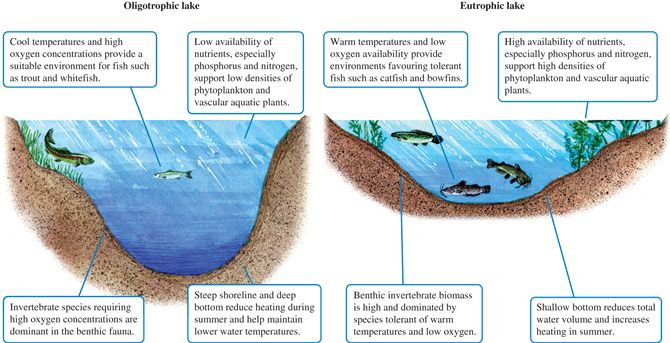 |
| Previous Image | Next Image |
| Description: Because aquatic organisms differ widely in their environmental requirements, oligotrophic and eutrophic lakes generally support distinctive biological communities. In temperate regions, oligotrophic lakes generally support the highest diversity of phytoplankton. These lakes are also usually inhabited by fish requiring high oxygen concentrations and relatively low temperatures, such as trout and whitefish. The benthic faunas of these lakes are rich in species and include the larvae of mayflies and caddisflies, small clams, and, along wave-swept shores, the larvae of stoneflies. Eutrophic temperate lakes, which tend to be warmer and, as we have seen, periodically depleted of oxygen, are inhabited by fish tolerant of high temperatures and low oxygen concentrations, such as carp and catfish, or fish that can breathe air in an emergency, such as gars and bowfins. The benthic invertebrate faunas of these lakes also tend to be tolerant of low oxygen concentrations; for example, midge larvae and tubificid worms, common in such lakes, have hemoglobin that helps them extract oxygen from oxygen-poor waters.
Picture Stats: Views: 7942 Filesize: 61.5kB Height: 343 Width: 670 Source: https://biology-forums.com/index.php?action=gallery;sa=view;id=1610 |
